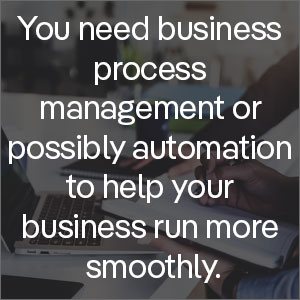Let’s face it, having a friend in the legal, banking, real estate, or automotive industry can be lucrative. A contact who has your best interests at heart might save you money, as they are likely to negotiate fairly. Or they might help to reduce your risk and bring you some peace of mind. Having a trustworthy advisor in a business-critical SaaS, or CLM market has its upsides, too. Just look at the contract lifecycle management (CLM) space. It has grown at a break-neck pace these past few years. And with all the new offerings, there is a broad spectrum of systems and services, including:
- Niche solutions that provide a limited set of functionalities
- Tailored apps designed to be role-, business function-, or industry-specific
- Open source, API-rich services that need extensive development and customization
- Feature-rich contract management suites that can be configured for multiple industries, use cases, and verticals
So naturally, deciding which contract management solution is ideal for your company is a daunting task. This is especially true if you ‘go it alone.’
Recently, we published a white paper about how to carefully look at the market landscape, properly evaluate solutions, and completely define your contract management system (CMS) needs. Written by Richa Kaul, ContractPodAi’s Chief Strategy Officer, this ‘contract management 101’ white paper offers recommendations and tactical frameworks for legal teams keen to buy a CMS. Whether you are heading your company’s search for a system currently or deciding on a vendor and solution, yourself, you will find this guide quite useful.
The following are four more insights to give you an informed CLM market perspective.
1. Define business goals first; worry about technology later
For many technology investments, your inclination may be to look to the vendor names you know well. You may see if they have a contract management solution in their product portfolio and ask for a demonstration. Or you might pick the top three vendors from an analyst report, book demos with each, and compare prices.
But taking this approach out of the gate can be counter-productive. It might have you evaluating solutions based on the wrong criteria. Instead, take up the conversation with the people who will use the solution and service you will deploy. Get their input, in particular, because they will use the system on a daily basis, ultimately.
Is your legal team struggling to create custom agreements, review partner agreements, or check supplier contracts? Are you looking to speed up your sales negotiations? At this point, the better defined your goals are, the easier it will be to narrow down a list of vendors to meet your needs – today. What’s more, that will help the solution providers with whom you are speaking. They can either present how well they meet certain CMS requirements or make clear that they cannot help you meet your goals.
2.Take stock of how your business is performing in the real world — and how you can digitally transform
Simply know what departments in your company need a CLM solution and why they need it. In other words, figure out the contract management use cases you want to address. Whether it is risk management, or mergers and acquisitions; what you value as a customer as far as meeting financial, strategic, or operational goals needs to be determined.
Do your agreements need to go through several rounds of approval before you sign off on them? If your contracts require complex workflow mapping and your contract managers need to intervene when circumstances change, you may need more than a contract repository and an authoring tool. You may need business process management — or possibly automation — to help your legal team run more effectively.
Have contract negotiation cycles suddenly become longer because your legal team is overwhelmed? Is the number of review cycles becoming unbearable? Or is your company struggling with poor renewal rates? Your use case criteria could range from the super-complex to the very simple.
At this point, it may still be too early to identify vendors to whom to talk and whose product you want to test drive. So, work out the features and functions that you need most of all. Perhaps the system must have a strong analytics engine. Or perhaps you need a virtual review assistant function to make things easier on the non-legal users. Just knowing these various options lets you filter the CLM market for your specific and unique business needs.
3. Look for relationships and successes in the CLM market that resonate with your company
After you have shortlisted CLM providers, take a look at their customer list. Ask if they offer testimonial videos, return-on-investment (ROI) studies, or other third-party confirmations. Ask yourself “can they live up to their promises?” After all, there are a number of contract management solutions on the market. And with those, there is some vaporware. So, ask if the company uses their own applications for a customer, supplier, employee, or partner agreement.
Yet another way to “size up” players in the CLM market is to find out if they have partnerships or offer pre-built integration with your existing software. If there are synergies with what you already have — as there are synergies with CRM, ERP, or electronic signature apps — you can shorten your onboarding time significantly.
4. Know your company’s position and perspective on AI?
Artificial intelligence is a form of machine learning. Natural language programming and smart predictive analytics are great ways to improve your employees’ own abilities. Automating high-volume, time-intensive tasks, like reviewing contracts and identifying non-standard term anomalies, gives companies a strategic advantage in their respective markets.
Nevertheless, some business leaders resist adopting AI-powered technology. They have been rather reluctant to assign important legal responsibilities to bots. But they would do well to partner with vendors that understand the value of AI within contract management. Having a proven platform — powered by IBM Watson, for instance — can help them immensely!
In the past decade, the contract management market has become crowded. There have been a handful of disruptive innovators but many me-too imitators. Some solutions cater to a sliver of the market or provide very specific contract management functionality.
So, first, decide what business goals you want to meet by investing in this legal technology. Know what you value most as an organization. However, do not transform your business to fit a given contract management application. Instead, find a solution that can be scaled and configured to your business process needs. This is for today’s needs as well as your future needs.
Want to learn more about the contract management system market? Want to select a CLM vendor and solution more strategically? Download your copy of our latest white paper, “How to Choose a Contract Management Solution,” today.









